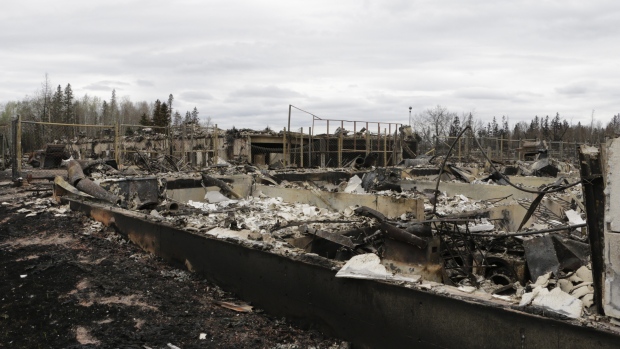May 10, 2016
True costs of rebuilding Fort McMurray vastly underestimated: expert
, BNN Bloomberg

The cost of repairing Fort McMurray from devastating wildfires will be higher than most expect and borne by all Canadians, says a noted economics professor. “The ripple effects are not going to be restricted to Fort McMurray or Alberta,” Atif Kubursi, a professor emeritus at McMaster University tells BNN. Consumers could feel the impact of the Fort McMurray wildfires though higher prices for insurance, taxes and even gasoline he says.
Hundreds of firefighters continue to battle the flames in Fort McMurray. So far at least 2,400 structures in the city have been consumed by the flames. And while whole neighborhoods have been lost about 90% of the city remains intact, according to provincial officials.
The final tab for the damage has yet to be tallied. Economists have slashed their forecasts for Canada’s economic growth in the wake of the Fort McMurray wildfires. But the economic costs will be higher and the full economic recovery will take longer, says Kubursi. “The bill is going to be high and massive and spread to many,” he says.
The wildfires have not directly damaged any core oil sands operations, but the fires have forced the shutdown of more than one million barrels a day of production. When that production will come back on line remains unclear, says Tim Pickering, founder of Calgary-based Auspice Capital.
The fire has knocked out power and damaged ancillary facilities oil producers rely on. Most important is the human disruption, says Pickering. The wildfires have forced the evacuation of nearly 90,000 people in the Fort McMurray region. It could be weeks before they are allowed to return to their homes.
The large amount of crude already in storage has helped reduce the impact on the global oil price, but market watchers are keeping a close eye on the situation, says Pickering. “When you take Canadian oil out of the picture it has to be replaced,” he says. “The globe is watching this incident, the U.S. is watching – it makes a big difference.”

